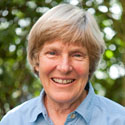Advisory Board and Editors Biological Oceanography

Ola Abdelwahab
Professor of marine pollution, an expert in physicochemical water/ wastewater treatment. my interest concerns water/ Wastewater treatment by different techniques. Design of different suitable set-up and conducting experiments for the removal of different pollutants or hazards such as heavy metals, dyes, phenolic compounds and oil spills.

Susana Agusti
Dr. Susana Agusti is Professor of Marine Science at KAUST (King Abdullah University of Science and Technology) at the Red Sea Research Center, and Adjunct Professor at the University of Tromsø (Norway).
She holds Bachelors and Ph.D. degrees from the Autonomous University of Madrid.
Formerly she was Research Professor with the Spanish National Research Council (CSIC), and Professorial Fellow with the UWA Oceans Institute and the School of Plant Biology at the University of Western Australia (Australia).

Anastazia T Banaszak
Research Professor at the Unidad Académica de Sistemas Arrecifales (Reef Systems Academic Unit) a campus of the Universidad Nacional Autonoma de México located in Puerto Morelos in the Mexican Caribbean. Her undergraduate education was at James Cook University, Townsville, Australia followed by her graduate degree at the University of California at Santa Barbara, USA and a postdoctoral appointment at the Smithsonian Environmental Research Center, Maryland, USA.
Her research interests include the photobiology of phytoplankton, corals and coral reef dwelling-organisms as well as coral reproductive biology and ecology. Most recently, she has become involved in research on best practices for culturing coral species for use in restoration projects.
She is a topic editor for Coral Reefs, council member of the International Society for Reef Studies and serves on the scientific advisory boards for the Healthy Reefs Initiative and SECORE International and is on the steering committees of the Coral Restoration Consortium and the Meso-American Reef Restoration Group.

Michael Beman
The overarching goal of my research program is to develop a predictive understanding of microbial ecology and biogeochemistry in the ‘Anthropocene’ sea. My research sits at the interface of microbial ecology, biogeochemistry, and global change science, and I work worldwide in reefs and estuaries, marine lakes and mountain lakes, and the open ocean. I focus on the responses of microbial communities, and the processes mediated by these communities, to environmental change—including climate change, ocean acidification, and ocean deoxygenation.
I received a B.S. from Yale University and a Ph.D. from Stanford in Geological and Environmental Sciences; before joining the UC Merced faculty in 2009, where I was a postdoc in Marine Environmental Biology at USC, a lecturer at UCLA, and an Assistant Researcher at the University of Hawai’i. I am an Associate Professor and member of the Sierra Nevada Research Institute and the Environmental Systems and Quantitative and Systems Biology graduate groups.

Mark C. Benfield
Professor in the Department of Oceanography and Coastal Sciences, College of the Coast and Environment at Louisiana State University. Adjunct (Guest Investigator) in the Biology Department at the Woods Hole Oceanographic Institution. Member and Past-Chair of the ICES Working Group on Zooplankton Ecology, member of the ICES Working Group on Integrated Morphological and Molecular Taxonomy, Director of the Gulf SERPENT Project. Ph.D. (Wildlife and Fisheries Sciences) from Texas A&M University.

John A Berges
Professor in Biological Sciences and Freshwater Sciences. PhD Biological Oceanography, U. British Columbia. Postdoctoral work, Brookhaven National Laboratory. Fellow of the Association for the Sciences of Limnology and Oceanography. Research interests include marine and freshwater phytoplankton and zooplankton ecophysiology and biochemistry, including molecular (e.g. evolution of cell death proteases) and biomathematical (e.g. agent-based modelling) approaches.

Angelo F Bernardino
PhD in Biological Oceanography and Associate Professor of Oceanography at Universidade Federal do Espírito Santo, Brazil. Interested in Marine Biology, Marine Ecology, Deep-Sea Biology and Conservation, Estuarine ecology, Biological Oceanography, Climate change impacts on marine ecosystems, Blue carbon.

Rüdiger Bieler
Curator (research professor) in the Integrative Research Center, Field Museum of Natural History, Chicago and Member of the Committee on Evolutionary Biology, University of Chicago
Research interests include evolutionary systematics, biogeography, comparative morphology, and taxonomy, with special focus on marine Mollusca, especially Gastropoda and Bivalvia. As a “museum person,” he is particularly interested in the development and application of organismal, collections-based research, ranging from extensive new field surveys and large-scale specimen and data management issues, to the integration of morphological, paleontological, and molecular data to address biological research questions. He recently served as lead PI of the Bivalve Assembling-the-Tree-of-Life (BivAToL.org) effort and is involved in coral reef restoration projects and associated invertebrate surveys in the Florida Keys. Past offices include service as president of the American Malacological Society and of the International Society of Malacology (Unitas), and he currently a member of the steering committee of WoRMS (marinespecies.org) and a chief editor in the MolluscaBase.org effort.

Julian Blasco
Dr Julian Blasco received his Ph.D. from the University of Seville (Chemistry). He is Scientist in the Institute of Marine Sciences of Andalusia (ICMAN), belonging to the Spanish National Research Council (CSIC).He was Director of ICMAN-CSIC (2015-2023) and he is responsible of research group "Ecotoxicology, Ecophysiology and Biodiversity of Aquatic Systems". He has published more than 230 articles in SCI journals and has been editors of several books. He is a member of the editorial boards of several journals in marine and environmental sciences.

P Dee Boersma
Wadsworth Endowed Chair in Conservation Science and Prof. of Biology, University of Washington, Director for Center for Ecosystem Sentinels and the Wildlife Conservation Society Magellanic Penguin Project, and Adjunct Curator of Ornithology, Burke Museum. Recipient of 2024 Godman-Salvin Prize, 2012 Ocean Conservation Award Aquarium of the Pacific, 2010 Nature Conservancy of Washington Environmental Hero, 2009 Annual Heinz Award for the Environment. Former President of the Society of Conservation Biology. For selected publications go to ecosystemsentinels.org.

William J Brazelton
Associate Professor, School of Biological Sciences, University of Utah.

Mya Breitbart
Professor at the University of South Florida College of Marine Science studying viral and microbial ecology

